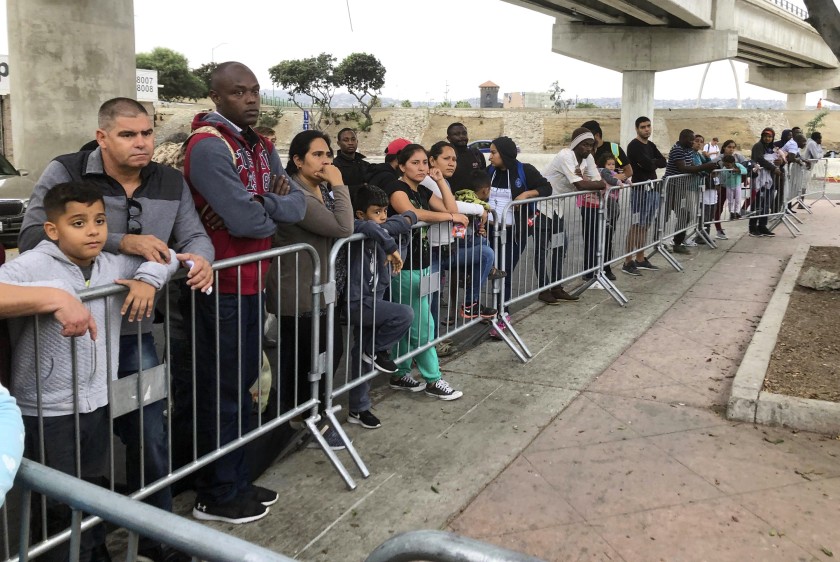The United States has formally ended the Trump-era “remain in Mexico” policy, which forced tens of thousands of Central American asylum-seekers to wait in Mexico for U.S. court cases, according to a U.S. Department of Homeland Security (DHS) memo sent to agency leaders on Tuesday.
The administration of President Joe Biden paused the program, known as the Migrant Protection Protocols (MPP), shortly after he took office on Jan. 20. Since then, more than 11,000 migrants enrolled in it have been allowed to enter the United States to pursue asylum claims, a DHS official told Reuters on Tuesday.
Biden, a Democrat, has reversed many of the restrictive immigration policies of former President Donald Trump, a Republican, saying Trump failed to honor U.S. asylum laws. Republicans have criticized Biden’s actions, including ending the MPP program, saying he encouraged an increase in migrant arrivals at the U.S.-Mexico border in recent months.
U.S. Border Patrol apprehensions at the southwestern border reached the highest monthly levels in 20 years in March and April. Apprehensions in May were similar, according to preliminary figures shared with Reuters.
Despite rolling back some Trump border policies, Biden has left in place a March 2020 health order known as Title 42 that allows U.S. authorities to rapidly send migrants caught at the border back to Mexico during the pandemic.
Advocates contend the policy cuts off access to the U.S. asylum system for many migrants caught at the border while Biden officials say it is needed to prevent the spread of COVID-19.
The MPP decision comes after a Feb. 2 Biden executive order called for U.S. agencies to review the program, first launched in 2019, and consider whether to terminate it.
The memo formally ending MPP, issued by DHS Secretary Alejandro Mayorkas on Tuesday, said the program did not “adequately or sustainably enhance border management,” noting that border arrests increased at times while it remained in place.
“Moreover, in making my assessment, I share the belief that we can only manage migration in an effective, responsible, and durable manner if we approach the issue comprehensively, looking well beyond our own borders,” Mayorkas wrote. (Reuters)






































